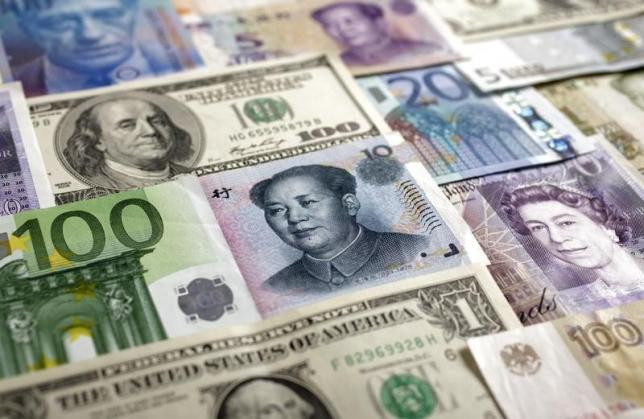Richest 1% of the world wealthier than the other 99% combined says surprising new Oxfam report

Global wealth continues to concentrate in fewer and fewer hands with the top 1% of the world's population wealthier than the other 99% combined, according to a surprising new study by Oxfam.
It found that a mere 62 individuals hold as much wealth as the poorer half of the entire world's population of 3.6 billion people.
It described how a "broken" economic model ravaged by deregulation, privatisation and financial secrecy has boosted the wealth of the richest 62 people by 44% in just five years to a staggering $1.76tn (£1.23tn, 1.61tn euro). During the same period, the wealth of the poorest 3.6 billion people plunged by 41%.
The Oxfam report is released just days before the start of the World Economic Forum at Davos.
"The big winners in our global economy are those at the top. Our economic system is heavily skewed in their favour. Far from trickling down, income and wealth are instead being sucked upwards at an alarming rate," stated the report by the international poverty-fighting non-profit organization.
Oxfam singled out the particular problems of increasing tax havens and lower taxes for the wealthy, and called for taxes to fall heavier on wealth and capital rather than on labour and consumption.
It also called for a living wage for all workers, an end to the gender pay gap, and restrictions on influence spending that continues to skew social benefits to the rich instead of to those who need them the most.
The rapidly increasing wealth gap threatens us all, the Oxfam report emphasized. The international Organization for Economic Cooperation and Development "notes that increasing income inequality poses a risk for social cohesion and threatens to slow down the current economic recovery," researchers point out.
The three richest men in the world — software mogul Bill Gates, Mexican telecom magnate Carlos Slim Helu and investor Warren Buffett — have a combined net worth of $230bn (£161bn, 211bn euros) Forbes reported in 2015.
In China, the richest 1% of households own a third of the country's wealth while the bottom 25% hold a mere 1%, according to a new report by Peking University researchers. In Britain, new data has shown that the richest 10% own nearly half of the country's total private wealth.
The International Monetary Fund last year warned the gap between rich and poor in advanced economies was now at its highest level in decades, making widening income inequality the "defining challenge of our time."
The world leaders in Davos, Switzerland, are expected to discuss the problem, as they have in previous years. "In addition to being a key economic concern, inequality represents the greatest societal concern associated with the Fourth Industrial Revolution," Davos forum founder and executive chairman Klaus Schwab has written. The forum will also address how technology will continue to dramatically alter the way we live, work and relate to one another — an issue Schwab also believes is linked to income inequality.
"The largest beneficiaries of innovation tend to be the providers of intellectual and physical capital — the innovators, shareholders and investors — which explains the rising gap in wealth between those dependent on capital versus labour," Schwab has said.
© Copyright IBTimes 2025. All rights reserved.






















